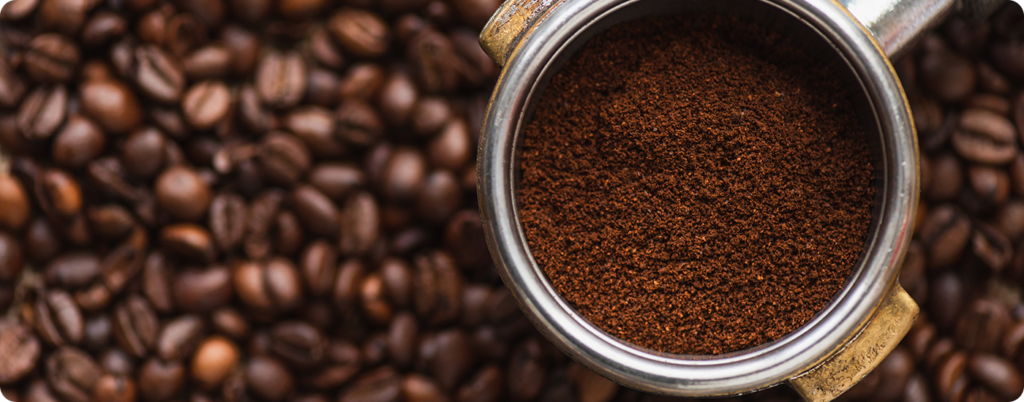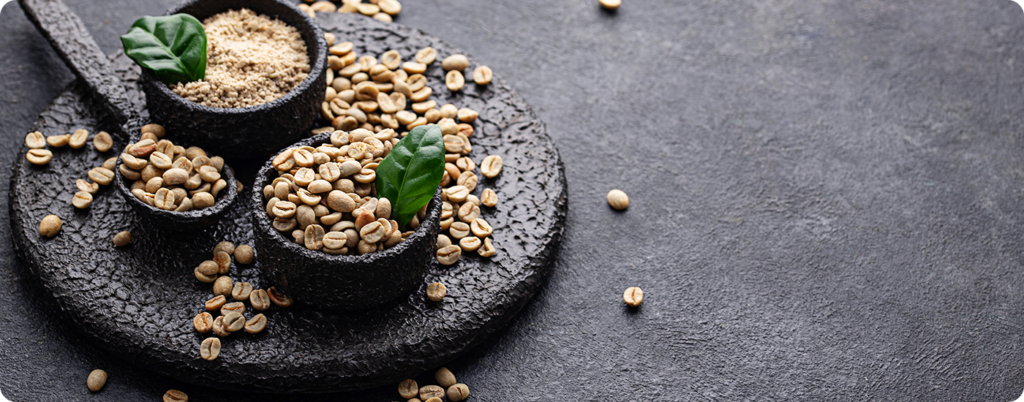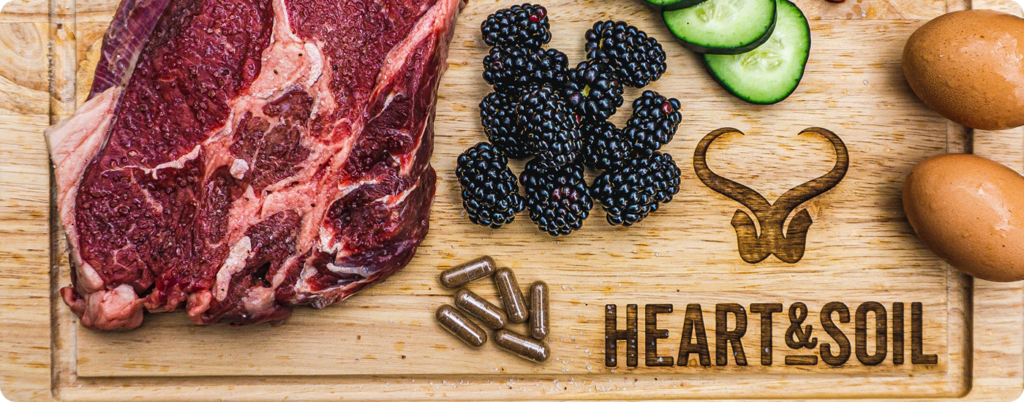PLEASE NOTE: The information in this blog is for educational purposes only. It is not a substitute for professional medical advice. Consult your healthcare provider if you’re seeking medical advice, diagnoses, or treatment.
Once something has become accepted as normal, presenting information that contradicts the popular narrative can be very challenging.
Whether you believe that coffee is good, bad, or just neutral for your health – popular opinion is unlikely to change.
After all, plenty of other substances are blatantly unhealthy (alcohol, cigarettes, hard drugs), but that information alone isn’t enough to make people stop using them.
In this article, we’ll discuss some of the evidence against coffee and suggest ways to optimize your intake if that’s something you decide is right for you.
We’ll also discuss alternative ways to boost your energy and focus!
Coffee: Friend or Foe?

This black, aromatic beverage is a staple in America and many other cultures worldwide.
People treat it with reverence, delight, and desperation. Most coffee drinkers depend on it as a ritual or a stimulant that powers their day.
Unfortunately, the evidence for coffee as a healthy beverage is often epidemiological (meaning it’s pattern-based, not causal). There’s also concerning evidence that misuse can have several health consequences.
The culture around coffee makes it very hard to see the facts clearly.
Companies market it as a “reward you deserve,” and “grabbing a cup of joe with friends” seems preferable to grabbing a beer or cocktail.
Our opinion may feel like a personal attack. It isn’t.
If you feel great drinking coffee, then stick with it. Paul Saladino, MD, always says to stay put with you’re current routine if you’re thriving.
However, if you’re like millions of Americans who experience wild swings in energy, heart palpitations, high blood pressure, and trouble sleeping, you should take a closer look at that cup of joe.
What Makes Coffee Bad for You?
First, coffee fits two of the criteria for a potentially toxic food; it’s a plant seed with high levels of defense chemicals.
Coffee contains acrylamide, polycyclic aromatic hydrocarbons, and heterocyclic amines – potentially harmful substances for humans.
Acrylamide is a probable carcinogen that appears in many common plant foods. The highest levels of acrylamide appear in light roast, instant, and coffee substitutes.

Mycotoxins (mold toxins) are another substance in some coffee crops (1). The beans, roots, stems, and leaves are commonly damaged by pests, pathogens, and fungal infections.
Fungal infections from mycotoxins like ochratoxin-A are tough to eliminate due to their size and resistance to heat.
Pesticide usage is also more common in non-organic coffee production (2). Residues from pesticides can remain even after extensive processing. These pesticides are known to be toxic to humans and the environment.
As you’ll see below, finding a brand lower in mycotoxins and pesticides is possible. While some contamination can occur, organic producers do not use pesticides and opt for more natural pest-management techniques.
However, you’ll still have the defense molecules in coffee seeds, specifically caffeic acid and chlorogenic acid, which have been shown to cause DNA breaks (clastogenesis) in cell culture (3).
Caffeine is a phytoalexin (plant defense chemical) and a methylxanthine that has adverse effects on the body, including addictive properties.
Caffeine blocks your adenosine receptors, which prevents you from feeling tired, which is NOT the same as being alert or energized.
People who consume a high volume of coffee or drink it late in the day often find that it interferes with consistent, restful sleep.
Coffee can also accelerate dehydration and flush important nutrients like calcium, manganese, or magnesium from your body.
Caffeine consumption can result in dependence. Once you’ve taught your body that caffeine is the answer, even if you avoid it, your body will remind you in painful ways that it needs a fix.
Finding Clean Energy Through Diet and Lifestyle Choices
If you’re suffering from low energy or big energy swings, your body is likely asking for a lifestyle and diet change.
The standard Western diet is clogged with processed carbohydrates, harmful seed oils, and toxic plant foods masquerading as healthy food.
This combination causes metabolic dysfunction, poor energy, poor sleep, and an increased likelihood of staying stuck in the cycle.

One solution is to give your body clean fuel and adopt a lifestyle that aligns with how humans have lived for thousands of years.
We’ve seen first-hand that an animal-based lifestyle can help you feel far better than a cup of coffee ever could.
If you’re unfamiliar with animal-based nutrition, it’s a diet and lifestyle that focuses on eating meat and organs from sustainably raised ruminant animals, such as cattle, bison, sheep, goats, and venison.
Including organ meats is critical because of the vitamins, minerals, and micronutrients in organ tissue. This approach is called eating “nose-to-tail.”
Your carbohydrates come from honey, maple syrup, and low-toxicity fruits and vegetables.
It may not be necessary to immediately reach for caffeine as natural energy boosters are all around you.
You can take a long walk, get some sun, take a cold shower (or hop in a cold tub), or exercise. Each of these can leave you feeling energized throughout the day!
A Cup of Joe Done Right: 5 Tips for Proper Usage
Like anything, there’s a right and wrong way to do something.
Drinking coffee is no different.
When included with intention, caffeine may be a tool that can boost your mental performance. Misuse can lead to dependence, sleep issues, and other challenges.
These key points are helpful if you choose to include coffee in your daily routine.
1. Choose a High-Quality Brand
We suggest purchasing organic, low-mycotoxin coffee brands such as Purity Coffee or Kion to minimize exposure to mold and pesticides.
Avoiding instant coffee can also be helpful, as plastic cups or containers can contain BPA and other potentially harmful substances (4).
2. Avoid Consuming Coffee By Itself
Consuming coffee on an empty stomach can negatively affect stress levels, blood sugar, and digestion.
One solution is to drink it with or after a meal. This helps to normalize your body’s glucose response to caffeine.
3. Timing is Everything
Having coffee immediately after waking can actually contribute to the afternoon crash that’s all too common.
Including coffee too late in the day can leave you feeling awake long after the sun has gone down.
Unsurprisingly, both scenarios can lead to poor sleep and a potentially vicious cycle of needing a fix throughout the day to keep you going.
It can help to delay caffeine consumption until 1-2 hours after waking and avoid it within 10 hours of your typical bedtime.
4. Choose High-Quality Inputs
Coffee often gets used as a vehicle for low-quality dairy and processed sugar, or worse yet, seed oil creamers, nut milk, and artificial sweeteners.
Instead, opt for raw honey or organic maple syrup as sweeteners. Add raw milk, raw cream, organic coconut oil, or maybe even grass-fed butter.
Ideally, you’ll also use filtered water.
5. Make Your Own at Home
While coffee shops can be a great place to work or get together with friends, most use low-quality beans, water, sweeteners, and added ingredients.
Not to mention, they’re often pricey!
The Choice is Yours
While coffee is one of the most popular beverages in the world, it doesn’t always work well for everyone. It can have various benefits, but it’s not without risk.
Giving up something as beloved as coffee is a tough prospect for anyone, especially if you believe you need it to stay happy and alert.
Hopefully, this article showed you that while you may not need to cut coffee out entirely, quality and proper usage cannot be overlooked!
Subscribe to future articles like this: